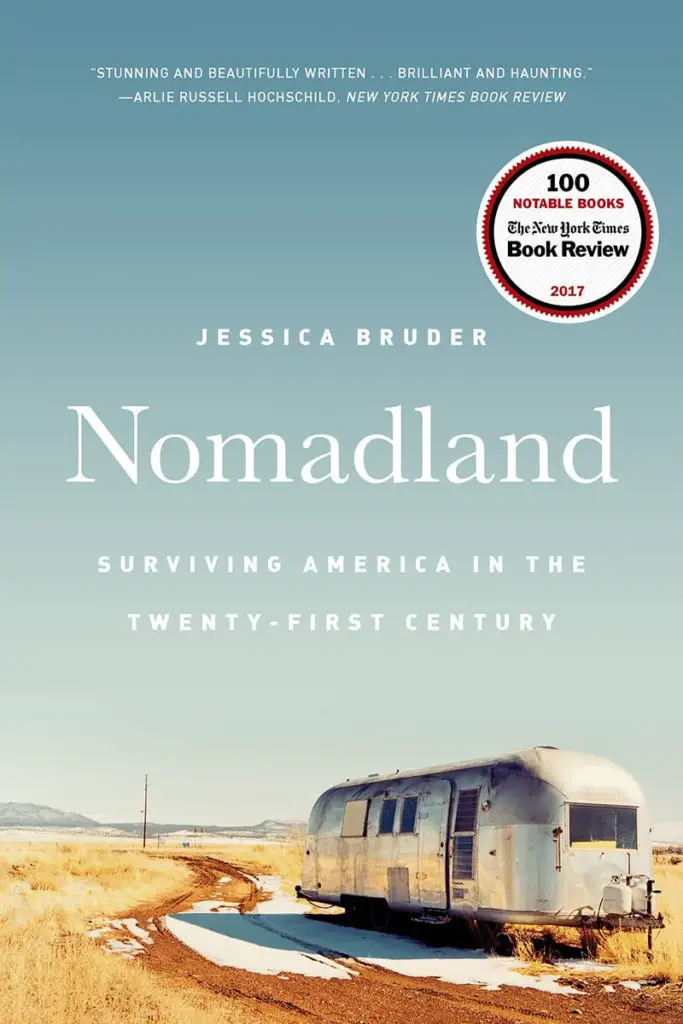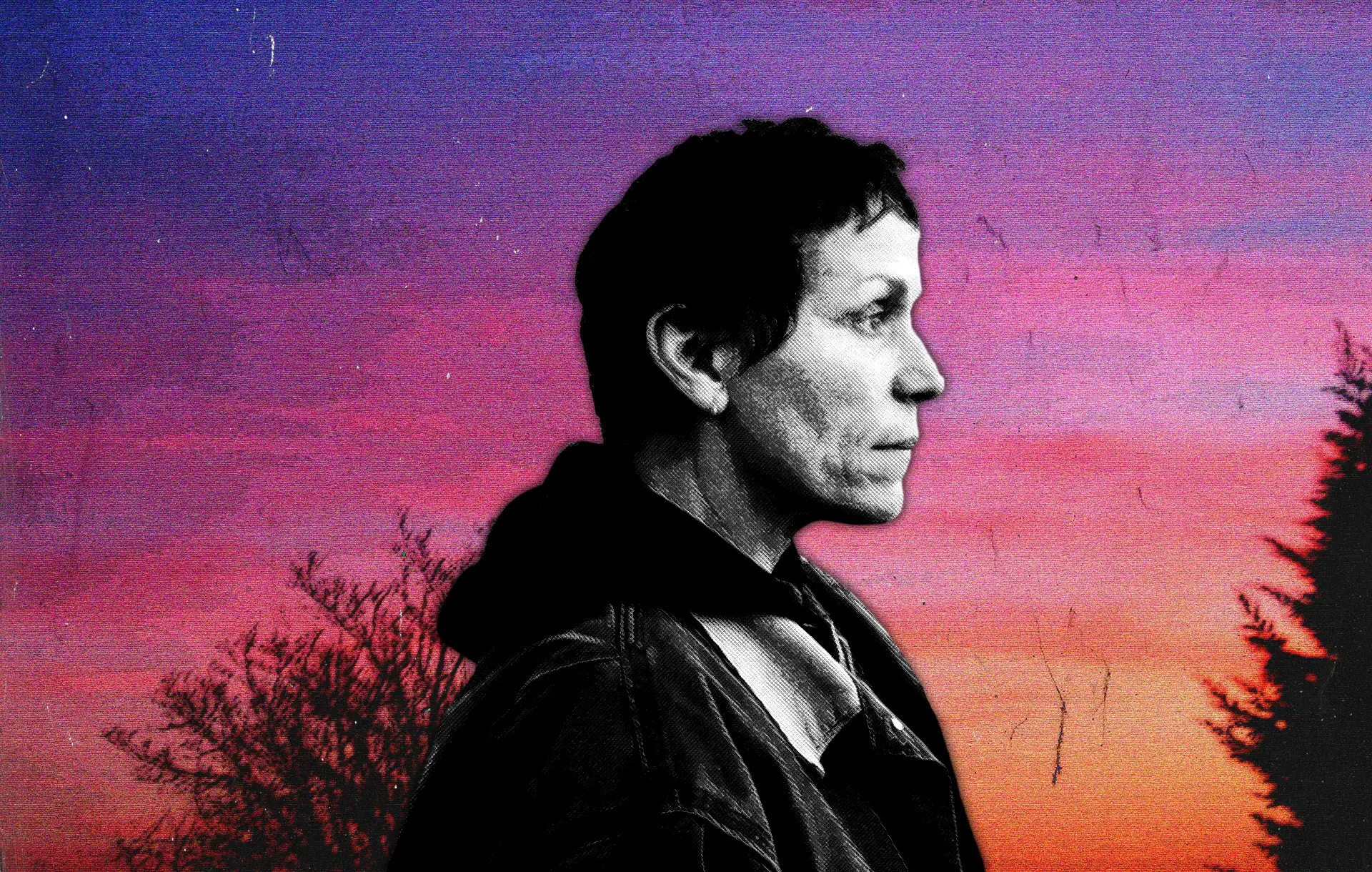Most of us make a living to attain stability in our lives; a stunning house, the fastest cars, latest gadgets, and whatnot. But there are some who choose to live a different way, a way that is free from social conformity, permanence, and predictability. These are the so-called Nomads, the free spirits who travel far and wide to find bits and pieces of home in the unlikeliest of places.
Venice Film Festival Golden Lion winner, 78th Golden Globe Best Picture winner, and Oscar-frontrunner, Nomadland (2020), is making waves in the industry for capturing the heartrending yet empowering journey and struggles of living life on the road.
The Road Less Traveled
Nomadland is based on a non-fiction book written by Jessica Bruder in 2017 entitled Nomadland: Surviving America in the Twenty-First Century, which tells the story of real-life nomads. It was then adapted for the screen by multi-hyphenate filmmaker, Chloé Zhao, who also directed and edited the film. She bagged the Best Director award at this year’s Golden Globe ceremony, setting a new feat as the first Asian woman and the second woman to attain such an accolade.

Portrayed by Academy Award-winning actress Frances McDormand, Fern is a widow who has lost her job and left everything behind in exchange for a life of spontaneity. The story follows her experiences and struggles of living in the middle of the great unknown – finding work, sustaining familial relationships, building new friendships, learning survival skills, and searching for her life’s purpose around the American West.
The film straddled the line between a documentary and a feature that combined both realistic and cinematic elements
The process of how the film came to be is as exhilarating as the characters’ journeys. Call it fate or serendipity, but McDormand brought the project to Zhao at a time when the director has long-been contemplating on embarking on a nomadic lifestyle and making a road film. After accepting the project, she knew that there was no better way to give justice to the narrative than to feature the real-life nomads in the book, Swankie and Linda May. Zhao and the film’s cinematographer (also her life partner), Joshua James Richard, went on a road trip in their campervan to learn more about the experiences of the nomadic community in Douglas, Arizona and Colorado.
In an interview, Zhao stated how that trip was a pivotal moment for her. “Every project I’ve done, there is this moment in prep which is my own dark night of the soul. I go, ‘Do I have a movie?’ You’ve gathered so much and it’s all in your head and it hasn’t worked yet. That trip really made me realize that it could.”
It was filmed over the course of six months, traveling through the stunning horizons of South Dakota, California, Arizona, Nevada, and Nebraska. Zhao and Richard’s affinity and understanding for this community remarkably bled through to every character and frame. Beyond the picturesque landscapes, pastel skies, and vast horizons, the duo captured the heart and soul behind the bittersweet reality that nomads endure on a daily basis. The rawness and truthfulness behind every setback, victory, reunion, and farewell felt too close to home. It was reality unfolding right before our eyes, giving us a taste of what it felt like to be part of such a modest and multifaceted community.
Zhao has a critical eye and a valuable way of working with non-professional actors. Her method was all about capturing reality as much as possible, with no rehearsals, just purely encouraging the nomads to be themselves. The film straddled the line between a documentary and a feature that combined both realistic and cinematic elements that powerfully elevated the narrative.
The Modern-Day Nomads
With today’s ever-changing world and work culture, life on the road has turned into a conventional and favored lifestyle that many people, especially millennials, are yearning to achieve. Not to mention, the pandemic has proven that working remotely is a viable option that could benefit all parties. Priorities have shifted more to investing time into one’s well-being and loved ones.
More than anything, the film succeeds in shedding light on this highly-criticized alternative lifestyle. There are still degrading and negative connotations attached to being a nomad or a drifter, simply because of imposed societal norms and conventions that are downright outdated. It also showed us the heartbreaking side of being forced into this way of living brought forth by economic recessions, government incompetence, and the housing crisis. A growing number of people, especially in the boomer generation, are losing everything they have and being forced to live in their cars or on the streets, drifting from one city to another hoping to find their footing.
Nomadland ingeniously addressed these issues and sparked meaningful conversations that are positively shaping the narrative and moving it in the right direction. Fern’s story is living proof that being a nomad is sometimes a personal choice and that taking the road less traveled oftentimes brings us the kind of belongingness and fulfillment that no material wealth nor stability could ever provide.




